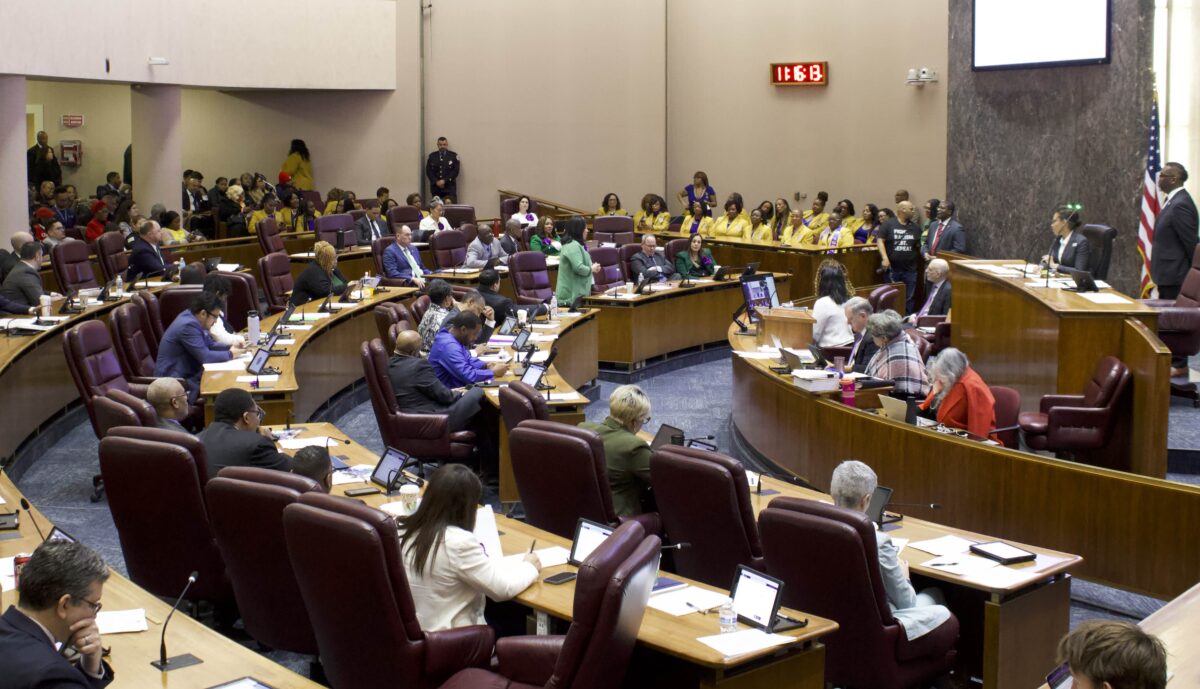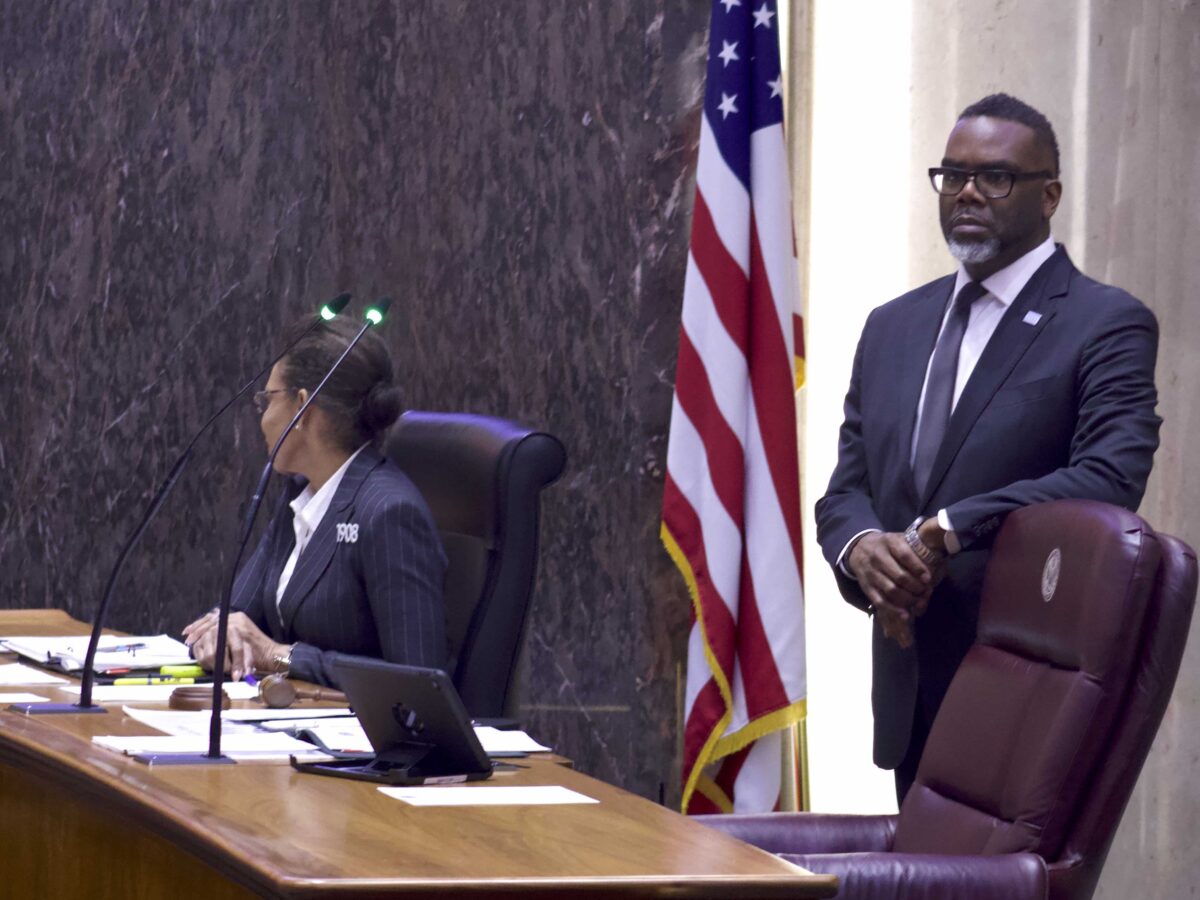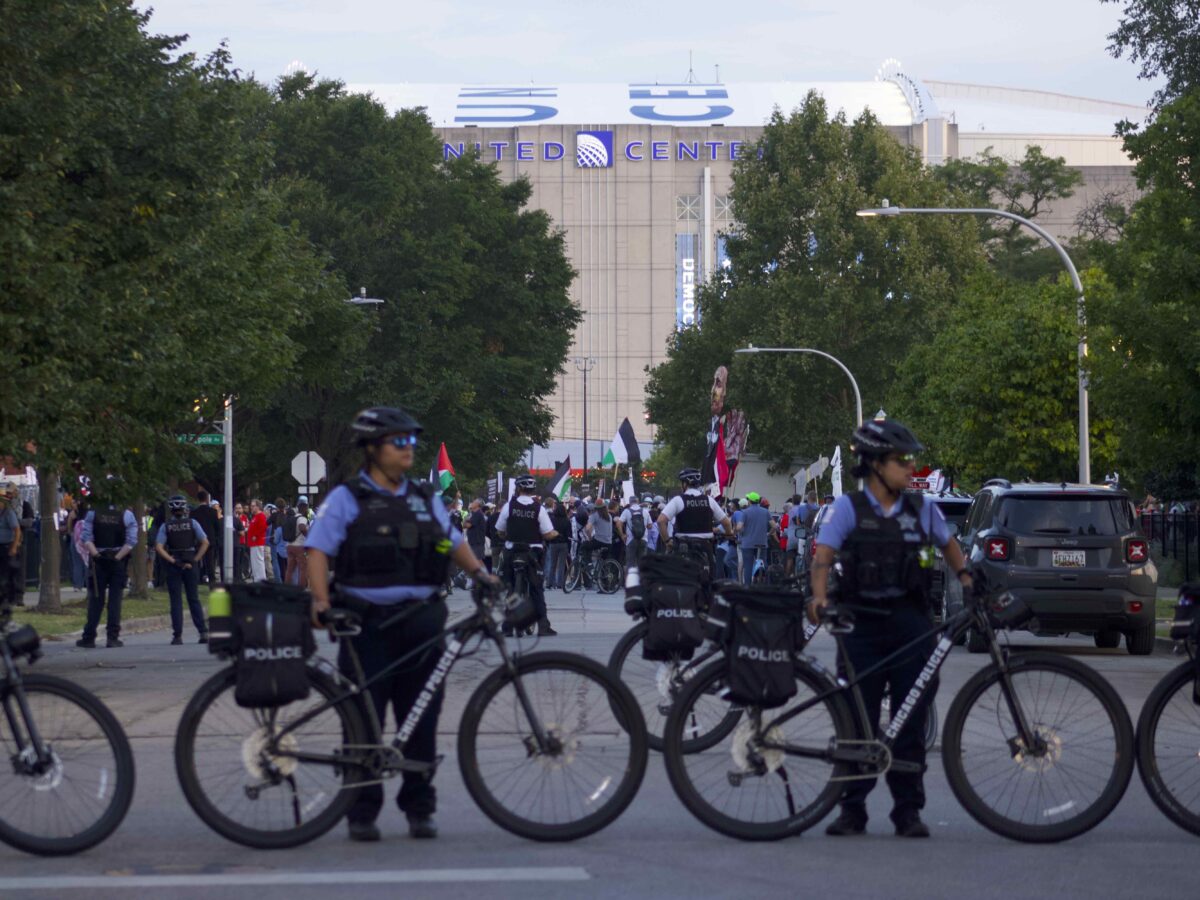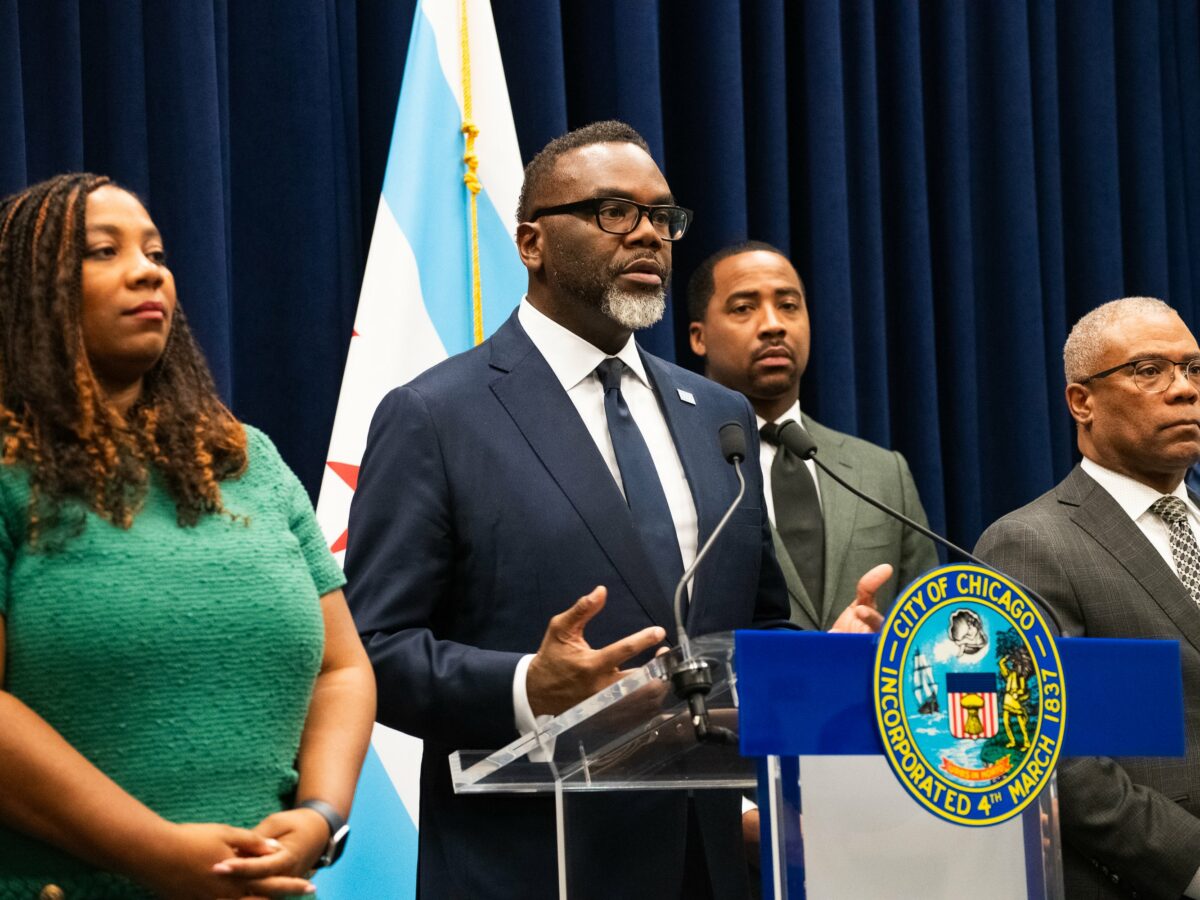Alders pumped the brakes on Mayor Brandon Johnson’s 2026 budget on Monday, as the City Council continued working through evolving measures including an unpopular corporate head tax.
On Monday morning, the Council’s Finance Committee rejected the mayor’s budget by a vote of 25–10.
Last week, Finance Committee Chair Ald. Pat Dowell (3rd Ward) told reporters that a vote in her committee Monday on the budget was too early, the Tribune reported. Johnson’s proposed $21 per employee per month head tax emerged as the major sticking point for Dowell and even the mayor’s recent concession to tweak the head count from 100 employees to 200 did nothing to assuage her.
Other alders echoed Dowell’s concerns about the head tax during Friday’s City Council meeting. Downtown Ald. Bill Conway (34th Ward) called the head tax “a definite no” for him, adding that it would disincentivize business in Chicago. Conway opposed the tax regardless of the size of the company it would affect.
“One hundred, two hundred, because once you start that, I worry it’s a slippery slope going down there,” Conway said.
The mayor had few revenue options to turn to when he first introduced his budget this fall. Last year’s 50-0 vote defeating the mayor’s proposed $300 million property tax increase all but guarantees that Johnson will not revive the measure. The mayor’s latest rhetoric, which uplifts the head tax as a challenge to “large corporations to put more skin in the game” while characterizing property taxes as balancing the budget “on working people,” also indicates the move would be a non-starter.
Congress dealt yet another blow to the mayor’s funding sources this week. Federal legislation closed a loophole that previously allowed businesses to sell hemp products with small amounts of THC means taxing those products to generate revenue is no longer possible.
In a post-council press conference, the mayor countered alders’ assertions that he was rushing the budget process, arguing that he began discussions in April.
“Now, here’s what I’ve experienced so far: that there has not been one alternative that has been presented,” Johnson said. “So I’m for more deliberation if we’re actually debating over something, but to slow it down, just for the sake of slowing it down? It just doesn’t make sense, right?”
Though Johnson has described the head tax as a way for large corporations to pay their fair share, 11th Ward Ald. Nicole Lee said she has heard concerns from smaller businesses. She noted that she’s less worried about the tax’s potential to force a mass exodus of businesses than the possibility that it could further stagnate Chicago’s ability to grow.
“I’m talking about a produce company in my ward that has 202 employees. The conversation was, ultimately, ‘What do I do? Do I lay off three people? What if I pick up six more restaurants? This is the math that I have to do. Do I have to move out to the suburbs?’” she said. “These are real things facing real people and those are jobs in my community.”
The Johnson administration has yet to approach Ald. David Moore (17th Ward) to get to the 26 votes they’ll need to pass the budget, he said Friday. Moore and Ald. Chris Taliaferro (29th Ward) were among those in the Black caucus who told the Weekly during Friday’s council meeting that they were still undecided about the head tax. Moore noted that the Johnson administration listened to his concerns about hurting franchises like McDonald’s that employ young Chicagoans and increased the head count to 200.
“They’re constantly talking. They’re not putting the pressure on us that we need your vote,” Moore said of the administration. “They’re saying, ‘Hey, what are your thoughts? You have any concerns about the budget? That’s been the conversation with me.”
Freshman 27th Ward Ald. Walter Redmond Burnet III has gone back and forth on the head tax. He initially opposed the head tax in a letter signed by a slim majority of the City Council, but later asked for his name to be removed. On Friday, Burnett told the Weekly he was “still digesting” the mayor’s proposed head tax.
“I need to protect my restaurants. That’s my number-one priority,” said Burnett, who represents the buzzy West Loop restaurant corridor. “But I understand the situation that we’re in and trying to figure out how we find solutions for everybody.”
Burnett could be open to a version of the head tax that affected companies with a larger number of employees, he said, emphasizing that he would not like to see another levy hitting the restaurant industry.
“They’ve been hit pretty dramatically,” he said. “And I just want to make sure that that strong community I have stays there, because they’re a multiplier effect.”
Burnett added that he wasn’t “completely opposed” to a bump in the city’s garbage tax — an increase that budget experts like the Center for Tax and Budget Accountability’s Ralph Matire support, but which the mayor’s office has described as regressive — and is examining the legality of other potential taxes with the mayor’s team.
Burnett III’s predecessor, his father Walter Burnett, served as Johnson’s vice mayor. The smooth-talking, veteran alderman worked as an affable liaison between the mayor and City Council. Whether the younger Burnett will take on a similar role as a Johnson ally or emerge as a gadfly is yet to be seen.
“There are a lot of values that I share with the mayor…. We need to invest in our West and South Sides,” he said.
“That being said, my background is corporate. I come from finance at the highest levels, and I have a bit of that middle ground of understanding of where these two parties stand. What I see my role as, is understanding that I am a willing participant in working with the mayor’s administration, but also being that olive branch to the business community to say that there’s an opportunity to have your voices heard and figure out how we come up with solutions.”
The next City Council meeting is scheduled for Tuesday morning.
Leigh Giangreco is a freelance reporter based in Chicago. You can follow her work on Twitter/X @LeighGiangreco and at leighgiangreco.com.




